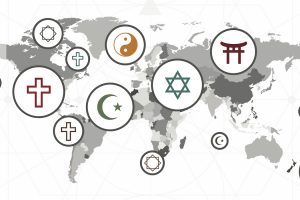
‘O ye who believe! fasting is prescribed for you, as it was prescribed for those before you, so that you may become righteous.’ [1]
Fasting has existed in some form in many world religions. The Review of Religions is pleased to publish a series of interviews about fasting with authentic voices from different faiths. Beliefs expressed in these articles are those of the individuals interviewed, to whom we are extremely grateful for sharing their very valuable insights.
Gen Kelsang Leksangis an ordained Buddhist nun and Resident Teacher at Kadampa Meditation Centre Birmingham. The centre teaches Buddhist Meditation to anyone, Buddhist or non-Buddhist, seeking reliable methods to reduce stress, increase happiness and find meaning in their daily lives. Gen Leksang has also volunteered at a local hospice and hospital, and is very interested in helping people face issues surrounding death, sickness and loss.
Does fasting take place in your faith tradition, and does it have a specific name?
Yes. It was taught by the Buddha. We engage in a practice on 15th of each month called ‘The Eight Mahayana Precepts’. This is a special practice of moral discipline which involves guarding our body, speech and mind for the whole day. We take the precepts at 6.30am and then have only one meal on that day – which takes place at lunchtime at 12.30pm.
We also engage in a practice called Nyungne which involves taking the Mahayana Precepts each day for two days. On this first day, we eat only one meal at lunchtime. On the second day we do not consume any food or drink for the entire day. This is combined with a special prayer practice of 1000 Armed Avalokiteshvara, The Buddha Of Compassion, which includes making physical prostrations.
When do you fast?
We can fast at any time but we particularly engage in fasting on 15th of each month and engage in Nyungne for two days around Buddha’s Enlightenment day on 15th April each year. Fasting is a personal choice.
Why do you fast, and what are the benefits?
Fasting is a good method to purify negative karma, to reduce our attachment to worldly pleasures and to develop compassion for those experiencing suffering, e.g. hunger.
ENDNOTES
[1] The Holy Qur’an 2:184



Add Comment